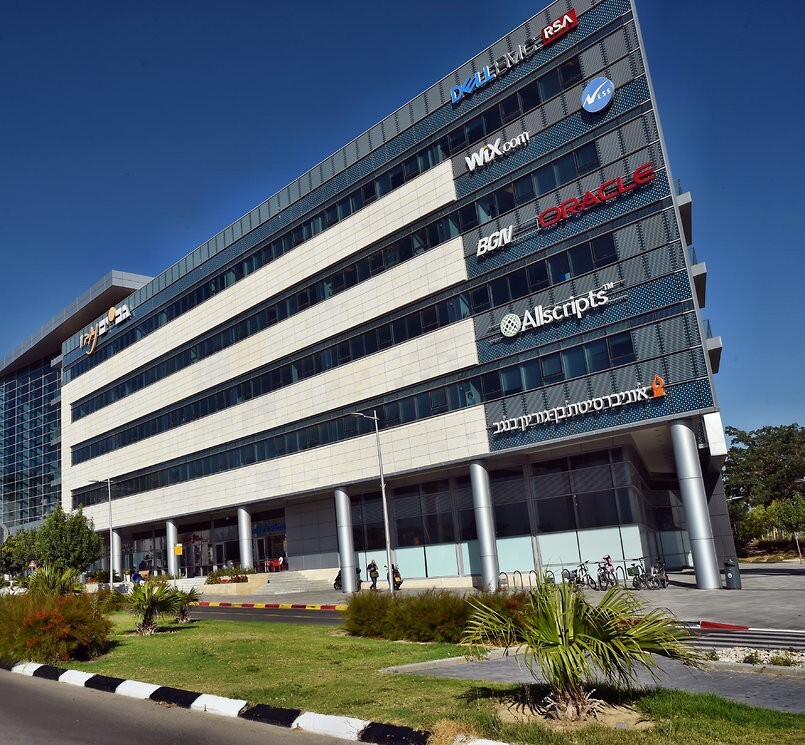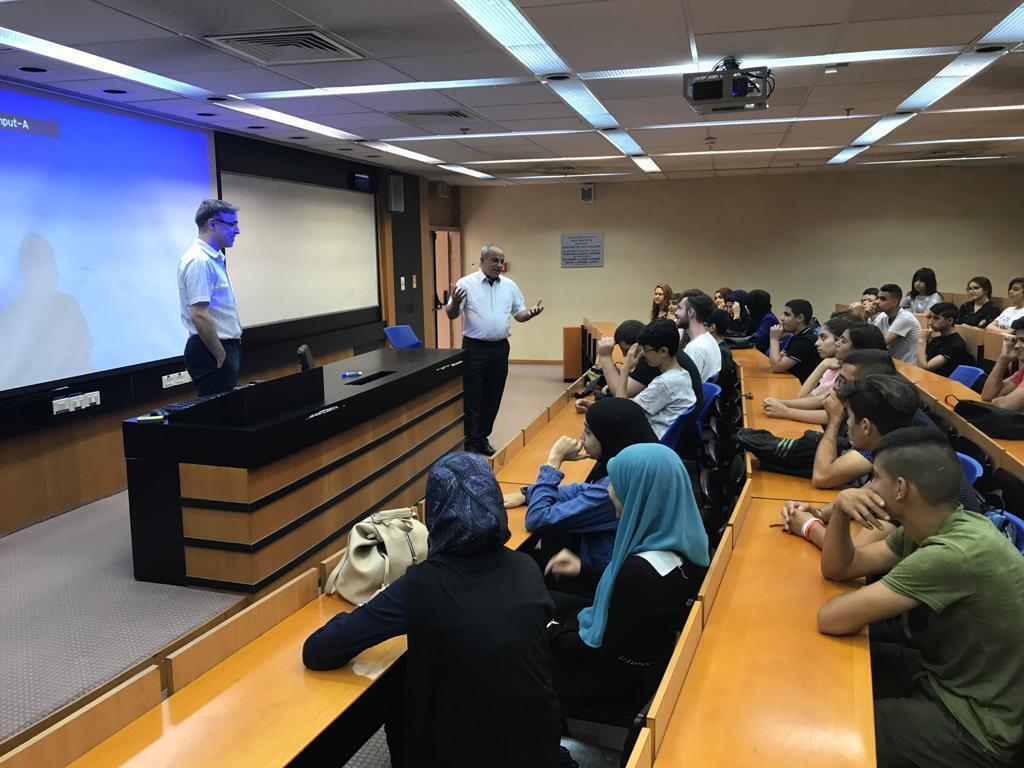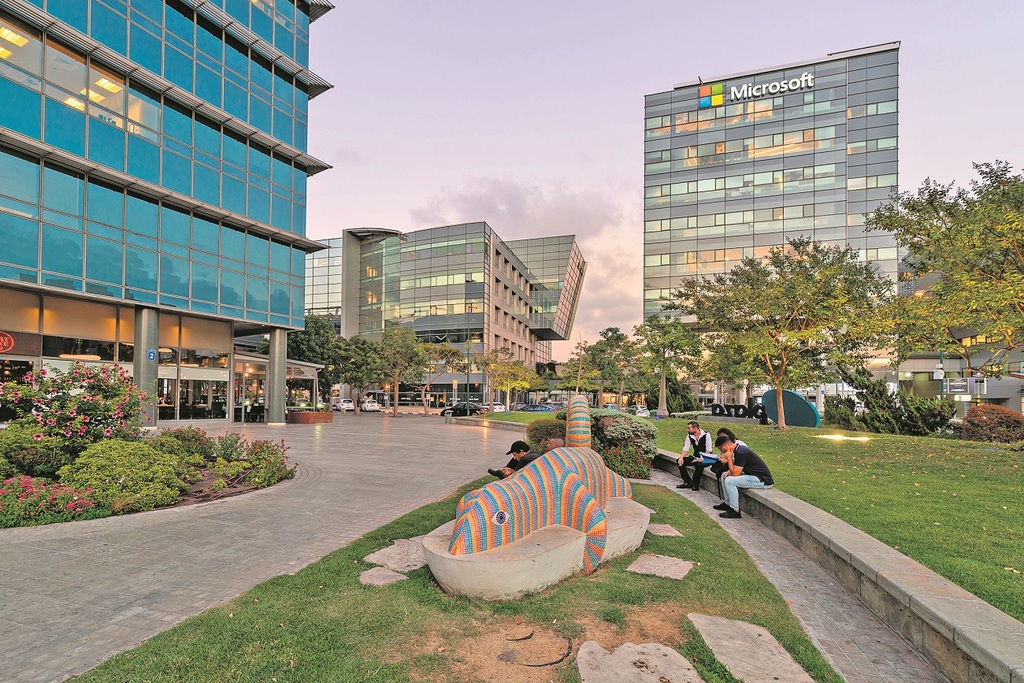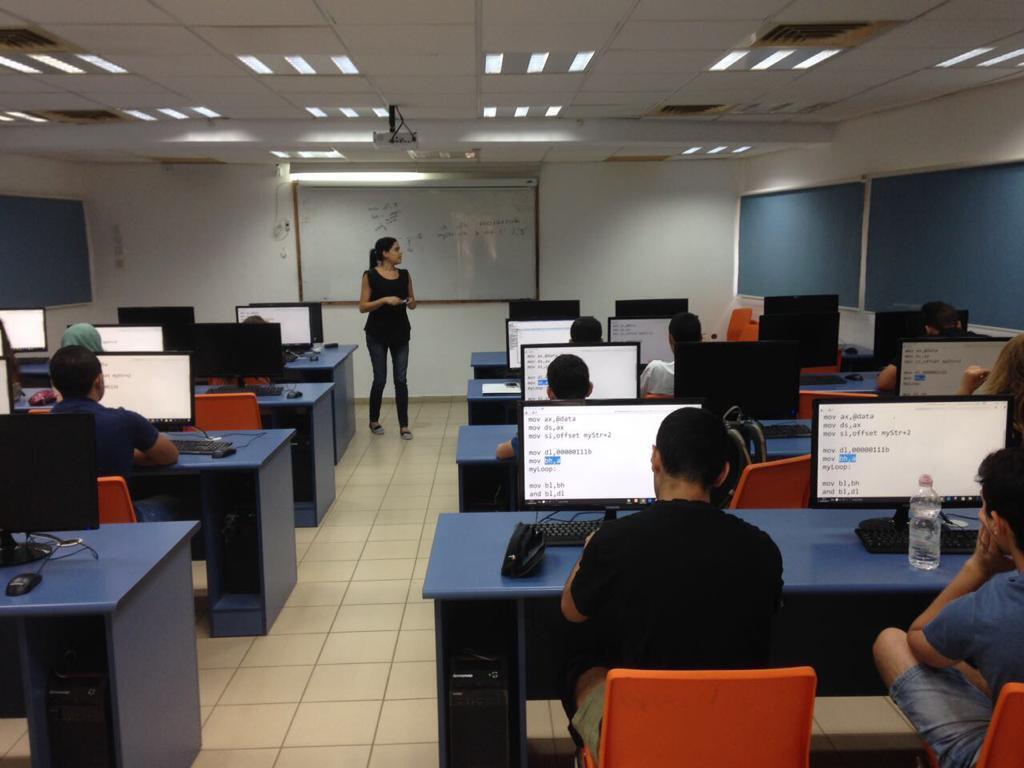Israel’s high-tech industry is world-renowned for innovation, a lively start-up scene, and multi-million-dollar deals. It leads the country’s economy, and yet only a select few are part of the scene and enjoy the prosperity that comes with it.
A little over 9% of Israel’s workforce is employed in the technology sector, according to the Central Bureau of Statistics, and there are several populations who often find themselves excluded from this small number.
5 View gallery
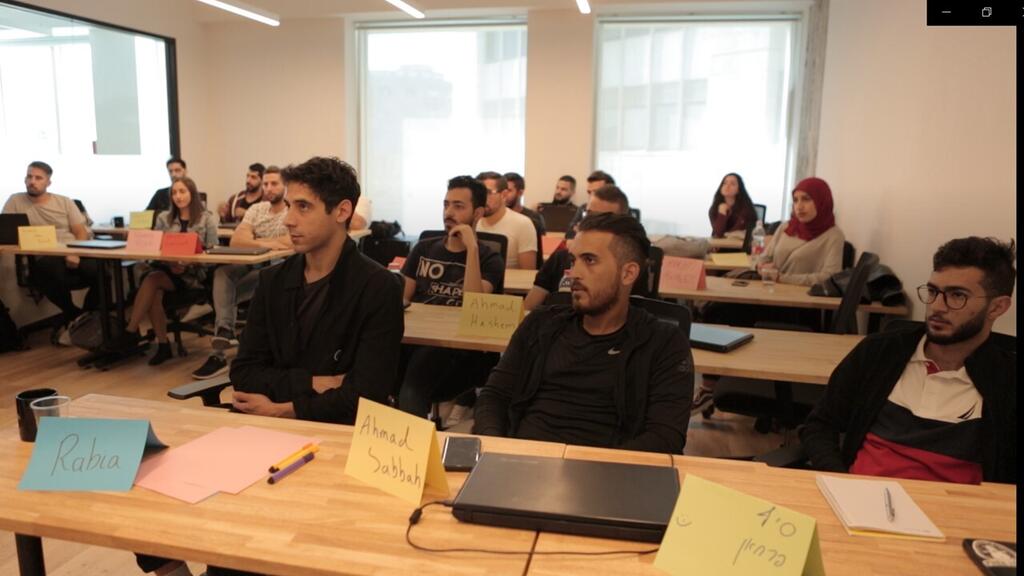

Excellenteam program by Scale-Up Velocity for Arab high-tech integration
(Photo: Scale-Up Velocity)
While women are making headway, the sector is still predominantly male. For Haredi, or ultra-Orthodox Jews and Arab Israelis, progress has been made in recent years, but there is much room for improvement. For those two sectors, entry into the high-tech ecosystem would bring a major improvement to their quality of life. The increased prosperity also would help to erase years of inequality.
Further integration is clearly a win-win scenario for both tech firms and potential employees. A little over 1% of employed Arab citizens work in the high-tech sector, a recent Bank of Israel survey showed. Around 21% of Israelis are Arabs, and their unemployment rate is higher than average.
Last week, the government approved a massive, multi-year plan for the Arab sector called “Takadoum,” which means progress in Arabic. Part of the plan is dedicated to increasing Arab presence in the high-tech sector. It ranges from encouraging school-age students to get their high school matriculation in sciences, promoting Arab job placements in the industry, and the creation of accelerators and R&D centers in Arab population centers. Almost $200 million will be dedicated to the plan.
A recent report released by the Start-Up Nation Central (SNC) NGO on human capital in the tech industry points to a surge in demand for engineers and developers with little increase in the supply. With more than 15,000 jobs open on average in recent years, the need is great.
The Arab population accounted for about 14% of the sector’s growth in 2018, according to SNC reports. “Our goal is to bring thousands of Arab engineers to work in the industry, but also to bring the industry and companies to open branches and start projects in the center of Arab cities,” said Sami Saadi, co-CEO of Tsofen High Technology Centers, a Nazareth-based NGO working to promote high-tech in Arab society in Israel.
Tsofen operates numerous programs that have managed to increase the number of engineers in the industry in recent years. The programs deal with many of the issues that need to be addressed, from developing the soft skills of candidates to helping them network, as well as exposing potential employers to the new labor pool.
When Saadi founded the Tsofen venture together with several colleagues in 2008, a few hundred Arab engineers worked in the industry. Today, he estimates there are 9,000. There is also an increase in the number of students studying the relevant professions at universities around Israel, with Arabs making up approximately 16% of the students.
“The numbers are rising, but not enough,” said Maty Zwaig, CEO of Scale-Up Velocity by Start-Up Nation Central, which aims to help solve the human capital challenges in the high-tech industry. “What is needed are processes that begin in the education system as early as high school, to expose the population to success stories and the different possibilities the high-tech industry offers.”
“This is the beginning of a process,” Zwaig said about the new government plan. “This is a matter of strategic importance for the country and the budget is critical, but it will only succeed with the active involvement of the industry and the companies.”
Arab citizens of Israel face special challenges when trying to enter the industry. Looking for stability, they are prone to choose professions in which employment is secure. When they see the small numbers of Arabs employed in high-tech, it may seem like such a career path is risky, especially in light of the rigorous education needed. Fewer Arabs than Jews complete their high school matriculation exams in the relevant subjects. In addition, Arabs often face a language barrier, since they are often less proficient in Hebrew and English.
On average, Arab communities face higher unemployment and crime rates, and often make less money than Jews working in the same positions. Many Arab families live under the poverty line, giving youngsters a tougher start in life. A staggeringly high percentage of Arab households have no access to the internet, according to a recent poll taken by Reichman University, formerly known as the Interdisciplinary Center Herzliya.
Arabs do not perform compulsory military service. For many Israelis, being in an army technology unit serves as a gateway to a high-tech job in civilian life. Start-ups are eager to recruit skilled labor just released from the army. Those who serve in coveted tech positions in the military often acquire a wide network of peers who then help each other get jobs.
“Through my own work, I felt the great distress in the industry in Israel due to the lack of talent,” said Smadar Nehab, who founded Tsofen with Saadi. A technology entrepreneur who has held several leading positions in the industry, she is well aware of the challenges. Often, she was told to outsource manpower to overcome the shortages.
“Why outsource from India when I have the Galilee?” she would ask. “The change so far has been huge, but the number of Arabs entering high-tech is still small,” Nehab added.
Tsofen aims to match Arabs’ presence in high-tech to their proportion in the population. These days, she is focusing on promoting Bedouin presence in this industry, a population almost non-existent in hi-tech.
“We are getting closer to the goal,” said Nehab. According to her, the increase in the number of Arabs studying Science, Technology, Engineering and Mathematics, or STEM professions at universities is indicative of a wider trend.
Zwaig, however, says the drop-out rate is still very high and discouraging. Close to half of Arabs who begin STEM studies leave before completing their bachelor’s degree, compared to 32% of Jews. The central bank’s report sees the language gap as a possible reason behind this, further emphasizing the need for a deeply rooted approach to solving the problem.
Another challenge is to get the industry to welcome Arab employees. “Companies would say they don’t see enough qualified Arab candidates, but also they have an unwillingness to walk the extra mile to look at Arab talent differently, taking the differences into account,” Nehab explained.
Throughout the years, Tsofen has succeeded in getting tech firms to open offices in Nazareth. “The presence of companies there that want Arab employees is a game-changer, not only for the population but also for the corporations,” said Nehab.
While progress is slow, it is persistent. There are still hurdles, but with the great need in the industry, Arab Israelis could find themselves an integral part of the solution. In addition, the Arab population needs to claim its rightful position in the industry.
“The Arab society itself did not believe high-tech was relevant to them; they thought it was for Jews only. This industry must change and they are the main resource for this change,” Nehab said.


